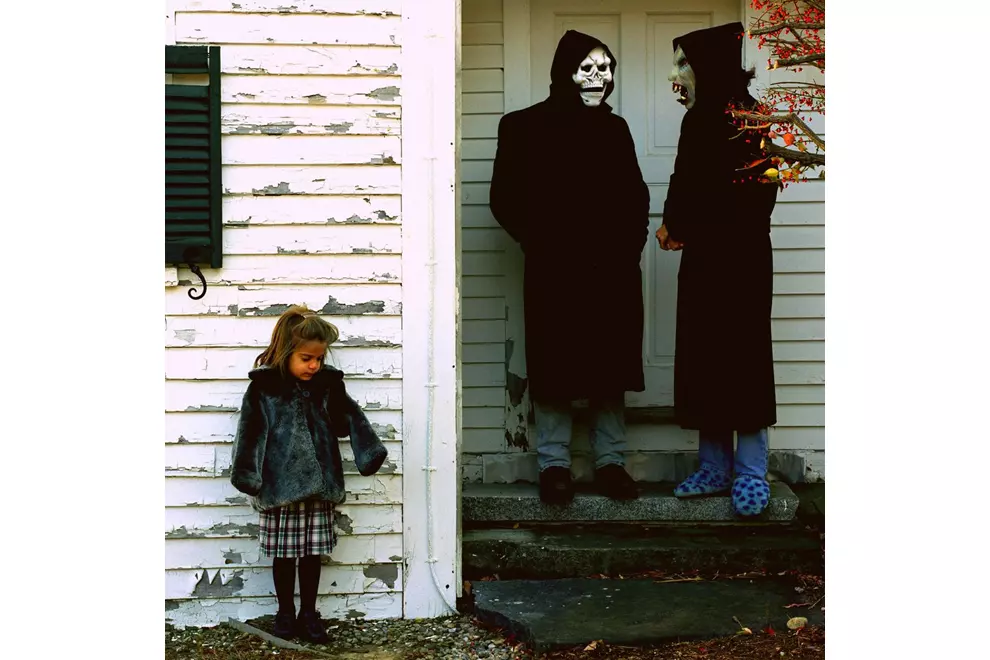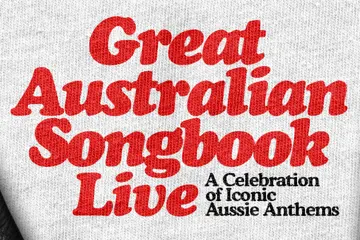Released: November 21st, 2006 (Interscope Records).
When people speak of ‘classic’ albums, they often do so in the sense of a great album being inherently ‘situational’; an idea which is typically explained by a release existing in the mind of the listener as a ‘time and place’ album. Most music fans remember where they were, and what they were doing when they heard iconic tracks like ‘Highway To Hell’, or ‘Battery’, or ‘Smells Like Teen Spirit’ for the first time. Now, this certainly isn’t a novel or recent concept by any means, but it is a phenomenon that appears to effortlessly transcend time and genre. It speaks to the strong connection that fans can have with their favourite records and the greater power that music exerts over all of us.
In this way, the third album from Long Island alternative rock act Brand New – ominously titled ‘The Devil and God Are Raging Inside Me’ – is a true classic. A decade on from the album’s release in November 2006, ‘Devil and God’ remains the band’s most popular, complex and rewarding release to date; a record that has taken on an identity all its own: existing outside of the band’s reclusive nature, forever shrouded in mysticism, and continuing to expose hidden layers of meaning for both fans and newcomers alike. To fully grasp the genius of ‘The Devil and God...’, it becomes necessary to inspect the album from a multitude of angles – much like a Magic Eye puzzle which may deceive on first glance yet suddenly burst into focus after a long and intense gaze. Understanding how the album’s cover artwork and release shaped the band’s future trajectory, alongside a detailed scrutiny of religious themes, lyrical hints and musical explorations, will, in turn, provide a resolution of the vast and grandiose scope of Brand New’s vision.
Formed in 2000 in Levittown, New York, Brand New – comprised of lead vocalist, lyricist and rhythm guitarist Jesse Lacey, lead guitarist Vincent Accardi, bassist Garrett Tierney and drummer Brian Lane – were an instrumental part of the Long Island music scene in their formative years, coming up alongside notable acts like The Movielife, Glassjaw and Taking Back Sunday (did someone say band beef). Their debut album ‘Your Favourite Weapon’ was released in 2001 with moderate success, due to the proliferation of emo’s third wave in the early 2000’s – popularised as ‘screamo’ by a traditional media that neither understood nor cared about actual music traditions – along with the band’s infectious, pop-punk instrumentals and Lacey’s bittersweet, break-up lyrics.
However, it was their sophomore follow-up in 2003’s ‘Déjà Entendu’ which garnered critical acclaim for the band and rocketed them upwards on a meteoric path to breakout success. Brooding with angst, restrained aggression and delivering a more potent, nuanced alternative rock sound, ‘Déjà...’ saw Brand New hit the mainstream with powerful singles like the sexually-charged ‘Sic Transit Gloria... Glory Fades’ and the dynamic ‘The Quiet Things That No One Ever Knows’. In terms of development, Brand New was always a group that had unashamedly altered their sound from album to album, mirroring their own progression as human beings. Speaking to the BBC in 2007, shortly after releasing ‘The Devil and God...’, Lacey references this notion directly, in regards to the band’s sonic transition between albums. "I don’t think that in our short recording career we have followed a path. It’s whatever comes out at that point. A song is never pushed into a direction. In ways, I think this is a record apart from the last record, but there are still certain aspects that they have in common. It’s always surprising to us, as we don’t know how it’s going to sound until we’ve written a few songs.”
Don't miss a beat with our FREE daily newsletter
In exploring Lacey’s path as principal songwriter and lyricist for Brand New, age becomes a crucial, determining factor. Lacey was in his early twenties for ‘Your Favourite Weapon’, his mid-20’s for ‘Déjà’ and approaching 30 at the time of writing and releasing ‘The Devil and God Are Raging Inside Me’. Framed in this way, Brand New’s first album is a product of their adolescence: focused on relationships while writing about Morrissey, Jude Law and jellyfish. And while the honest and heartfelt tone of ‘Déjà Entendu' alludes to struggling adulthood, it’s the jagged instrumentation, ruthless dynamics and full-blown, existential challenges of their third album which positioned it as an early mid-life crisis put to tape.
This revelation serves to highlight two concepts within ‘The Devil and God...’ that become essential to the record’s overall meaning: contrast and conflict – elements which are manifested visually in the album’s eye-catching cover artwork. Originally titled ‘Untitled #44’, the picture used for the cover (found below) was taken from photographer Nicholas Prior’s ‘Age of Man’ collection, which the band had seen at a New York art show and became fixated on using for the cover of their next album. In an interview with Consequence of Sound for the album’s anniversary, Prior details how the band “felt very strongly about using my photo” and the circumstances around his initial refusal to release the piece for the band’s use. "I found out who the band was, and they sent me an advance copy of the album, which is what sealed the deal. At some point, I was also told that no text would run over the image, which I thought really indicated their commitment to the image.”

In fact, Brand New would double-down on this level of commitment, releasing ‘Devil and God’ with a cardboard cover that featured no track listings, and withheld the name of the band and album itself. In truth, this evocative image manages to speak volumes without requiring a single word: a young, distracted child, innocuously framed against white, weather-worn wood panels, contrasted beside sinister-looking, yet somehow jovial strangers, in front of a closed door, wearing dark cloaks and masks. “I think the little girl is the scariest; I feel the place of power resides with the two people in the mask, but the girl seemed oddly calm in that situation,” says Lacey, reflecting on the album’s visuals. “The way she holds her arm and sleeve seem strange, almost like she does not know what’s round the corner. I think it has a level of creepiness for sure, but it is a definite photograph that has an insight for everyone, and it makes people think. Every time I look at it, I think of something new.”
This level of mystery and apprehension would later become a feature of the album’s release cycle and go on to define Brand New’s career. Upon its initial release, the record was sold without a complete lyric sheet, instead having a small insert of collected photos, which instructed fans to ‘Please send $1 to [address] for a complete copy of the lyrics.’ Despite the lyrics eventually appearing on the band’s website (and devoted fans who followed instructions receiving full lyric sheets almost a decade later), antics like these fostered a sense of tension and suspense that would only increase year after year, later inspiring some hefty, Reddit-thread theorising. Add to this, how Brand New would often vehemently distance themselves from their label and the larger music industry apparatus, along with infrequent engagements with the press – even during album cycles – only to leave cryptic messages for fans to decipher on their own.

In a rare interview with Rock Zone magazine last year (originally featured in Spanish, and hastily translated by a feverish Reddit community), Lacey describes the aversion to celebrity culture that appears to have weighed in heavily on writing ‘The Devil and God Are Raging Inside Me’, saying “The mystery that exists around our band and the level of respect our fans have towards the band, is a mystery to us. The reality is that we don’t even know what’s going to happen next,” admits Lacey. “I would feel overwhelmed by so many people supporting us, and even now, it’s something that has always scared me. Now that we are older and this path is gentler, I feel more comfortable and prepared to take that second step. I think years ago that would have probably have destroyed me.”
From the first notes of the album opener and lead single ‘Sowing Season’, it’s hard not to notice those themes of disillusionment, anxiety and imminent self-destruction boiling at the surface. As the track opens with delicate guitar picking, it slowly builds off a softly-spoken refrain, while Lacey laments the loss of friends, finding solace in alcohol and absentee-driving. As the verse flows on, Lacey reflects on his perceived faults (“I am on the mend/At least now I can say that I am trying/And I hope you will forget things I still lack”), and how the band begins to lose control of their own art in its consumption (“Is it in you now/To bear to hear the truth that you have spoken/Twisted up by knaves/To make a trap for fools?”), before Accardi arrives with a shimmering lead and the song descends into a maelstrom of churning riffs and explosive drums, over the top of Lacey screaming an affirmative “Yeah!”
It’s a powerful moment, and one that immediately sets the tone for ‘The Devil and God...’, making clear the band’s intentional manipulation of quiet/loud dynamics, and mirroring the good versus evil premise suggested by the album’s title and cover. “I don’t think the title was meant specifically for one idea, but more that it touched on the band and also certain things that were evident when you listen to it,” says Lacey. “It really came from a conversation I was having with a friend about a musician who got an illness which has a certain level of paranoia and schizophrenia, and it leans towards a spiritual thing, a battle between good and evil which is intriguing. The phrase itself was pretty cool, and reading it somewhere else would be striking, so that was what drew me to it, but listening back to the album I realised how much it represents quiet and loud, the good and evil, but it also has a lot to do with faith and some spiritual aspects of the band.”
And while Brand New and Lacey are certainly no strangers to religious allegory (see ‘Seventy Time 7’ or ‘Me Vs. Maradona Vs. Elvis’), tracks like the uplifting ‘The Archer's Bows Have Broken’ and crowd-favourite ‘Jesus Christ’, represent the band’s most overt foray into analysing crises of faith, a topic which once again revolves around the conflict and contrast present in the album’s title. On the former, Lane’s ever-present, rolling snare and fluid high-hat drive the song from its core, sounding like The Killers on steroids, while Lacey throws down lyrical barbs laced with ideological rhetoric (“Who do you carry that torch for, my young man?/Do you believe in anything?/Do you carry it around just to burn things down?”) The track also features one of the band’s best choruses, and shows the group aping their influences, like tour-mates and close friends mewithoutyou and Manchester Orchestra. In the second verse, Lacey speaks fervently of love like a burning “ember” in his chest, before reflecting on how dangerous blind faith can be if it’s not tempered with compassion (“Burning out my centre till there's nothing but dust/Rolling me with care into your cigarette/'Cause the God I believe in never worked on a campaign trail.”).
In perhaps Lacey’s most iconic lyric, ‘Jesus Christ’ opens with a curious dialogue that could be with the Son of God or, perhaps, just a handsome stranger (“Jesus Christ, that's a pretty face/The kind you'd find on someone I could save/If they don't put me away/Well, it'll be a miracle.”) As Accardi leads the way with a catchy and resonant riff, Lacey strings the conversation towards awaiting heavenly ascension, ruminating about loneliness (“And I will die all alone/And when I arrive I won't know anyone”), death (“I'm not scared to die/I'm a little bit scared of what comes after/Do I get the gold chariot?/Do I float through the ceiling?”), and sin (“And this ship went down in sight of land/And at the gates does Thomas ask to see my hands?”)
Talking to Consequence of Sound for their own anniversary piece, solo-artist and close friend of Lacey’s, Kevin Devine, describes the first time he heard ‘Jesus Christ’. “I listened to that song probably 14 times in a row. I remember that vividly, thinking that was the best song they had ever written,” admits Devine. “Songwriting-wise, it is slow, nuanced, the hook is great, there’s that faint nod to Modest Mouse with the harmonic bend in the chorus. I was really, really, really impressed. It’s a songwriting song — emotionally, educationally, intellectually, structurally, in every way.”
And while lyrically, the album is a dark, fragile and poetic masterpiece, there are moments where the instrumentation and the lyrics collide with such sudden, violent force that it’s almost breathtaking. Take the screeching mid-section and dizzyingly layered vocals of ‘Degausser’, a song that many fans believe to be a haunting ode from Lacey to his former girlfriend and musician Sherri Dupree-Bemis of Eisley fame, who famously turned down Lacey’s marriage proposal (“Well you're my favourite bird and when you sing/I really do wish that you'd wear my ring.”)
Other highlights include the bombastic bridge and blistering solo in ‘Limousine (MS Rebridge)’ (a song written about the tragic death of a young girl, killed in a car accident by a drunk driver, while she lay asleep in the back seat coming home from a wedding), the gut-wrenching scream that rips apart the largely acoustic ‘Luca’, or the duelling guitars which propel the carnal and aggressive ‘You Won’t Know’. Even without Lacey’s formidable vocals as an anchor, the hypnotic instrumental ‘Untitled’ and the explosive ‘Welcome To Bangkok’ ensnares the listener in a vice grip and forces them to hold on for dear life. The latter track being written solely by Accardi, and one the band would notoriously turn into a riot-worthy, jam-band freak-out on stage, encouraging friends and other musicians to join them in raw, sweaty catharsis.
In returning to audio engineer Mike Sapone (who also helmed their debut album and ‘Play Crack The Sky’ from ‘Déjà...’) to produce and engineer ‘The Devil and God...’, Brand New managed to turn misfortune and setbacks, into a torrent of unrivalled creativity. After originally working with producer Dennis Herring (The Hives, Modest Mouse), the band had run out of both time and money, and the accidental leak of song demos from the album sessions online forced the band to start over and regroup with Sapone. After writing nearly 40 songs in total across a year and a half process, the band revised and rewrote the entire album, with some songs making the cut and others being completely scrapped.
In a (poorly translated) interview with German magazine Allschools, Lacey describes Sapone as “more a part of the band, to be honest, than he is a producer. He is more like a fifth or sixth band member. We’ve known him for so long and he has helped us basically since the beginning of the band… We still went through a lot of experimenting and ideas that we probably wouldn’t have gone through if we weren’t with him.” It’s this revisionist approach and ‘nothing to lose’ attitude that shows through on the album’s lighter tracks: the gentle, mid-tempo ‘Millstone’, the indie-tinged ‘Not The Sun’, and the frighteningly fragile closer ‘Handcuffs’, where Sapone’s connection and influence on the band resonates through warm, organic tones to supplement Accardi’s devastating lyrics (“I’d drown all these crying babies/If I knew that their mothers wouldn’t cry/I’d hold them down and I’d squeeze real soft/And let a piece of myself die.”)
However, working towards any form of all-encompassing, concise analysis of ‘The Devil and God’ is an attempt steeped in futility. It’s Brand New’s longest and most daring album, and over twelve diverse and distinct songs, the band fight off their personal demons and exorcise them through music. Lacey and Accardi’s lyrics are simultaneously emotional and eclectic, thoroughly relatable and deliberately vague at times, allowing the listener to devise a myriad of explanations as to how that particular song may speak directly to them or their personal situation. And in many ways, that’s wholly intentional. “We were glad to be playing with each other again, but we also had some feelings that needed to get out. We did a good job with that,” confesses a suitably proud Lacey. “I heard people talk about writing songs being therapeutic and I never really felt that until this record. I understand finally what they meant. There were a lot of questions asked with which I could deal with while writing these songs.”
It's this realisation of legacy through therapy, that reveals the true power and greatness of ‘Devil and God’. It’s an album that dared to tackle the big questions, yet remained self-aware enough to understand that it posed no real answers. On the band's Facebook page, Lacey recently described the album as “An important record and piece of work to us, and one that 10 years later we still use as a measuring post with which we compare the music we make now.” It pushed the band into new, unexplored territory and legitimised a group of angst-ridden adolescents, as true, stadium-rock contenders for a new generation. It’s not just an album built on the foundations of opposition: conflict and contrast; quiet and loud; good and evil – it’s about fundamental growth as a human being.
As Brand New fans sang along to ‘Your Favourite Weapon’ in high school, and defiantly blared ‘Déjà Entendu’ to rebuild themselves after a torturous breakup, ‘The Devil and God Are Raging Inside Me’ was infinitely more malleable, versatile and situational. It was the record of choice for young adults wallowing helplessly in their own purposelessness: sitting alone in a dark room with headphones on, as dire thoughts of love, hate, life and death spiralled away in their minds in perpetual cascade. This record was made for screaming loudly into the abyss, and not caring if anything screamed back. It’s the album that made fans (this writer included) realise that the Devil and God rage inside of all us. And they always will.
Brand New have recently been playing 'The Devil and God Raging Inside Me' in full on select tour locations in the U.S. as part of the album's tenth anniversary. The band have also hinted at their long-delayed fifth album seeing the light of day in 2017 sometime before the band's self-imposed demise arrives in 2018. To fight off your own demons, go here.

















